Last week’s Republican National Convention in Cleveland speakers list felt, at times, a bit like a convention for autograph collectors. Scott Baio of Happy Days! Willie Robertson of Duck Dynasty! Kimberlin Brown of The Young and the Restless! Antonio Sabato, Jr., of… being a model? It made for an easy insta-analysis of the sea in which nominee, and former Celebrity Apprentice host, Donald Trump swims: The candidate is surrounded by the sort of self-promotional demi-celebrity that grows once the half-life of true fame draws to a close, or that’s newly minted by reality TV.
But while the list of stars feels very Trumpian, the fact of pop culture’s outsized presence may just be a sign of a new normal. The Democratic national convention has been even more reliant on pop culture in order to carry across its messages. But the manner in which they’ve done so expresses a very different vision of how celebrities can be deployed in the political arena than the Republican Party’s. Trump’s celebrity surrogates are meant to be believed because, as stars, they’re more venerated and respected than average people watching at home. They had bold and at times apocalyptic pronouncements to make that they, as celebrities, assumed you’d want to hear. Hillary Clinton’s surrogates, by contrast, are slickly packaged to seem messily relatable. They’re folksy in the most groomed possible way.
Consider the a capella video of Clinton’s campaign theme, “Fight Song,” that aired Tuesday night and that has received over one million views on YouTube. Produced by and starring Pitch Perfect 2 director Elizabeth Banks—a frequent presence onstage on Tuesday’s DNC broadcast—the video features stars that even an avid celebrity-watcher might not recognize, goofing off to a very easy-to-sing song. The most recognizable voice is that of left-wing icon Jane Fonda, who just talks her line with great verve; other performers, such as TV performers Eva Longoria and Julie Bowen, melodramatically overdo their dance moves to a not-particularly-danceable song. They’re not vocalists—they’re guests toward the end of a very fun wedding.
Celebrities at the Democratic National Convention
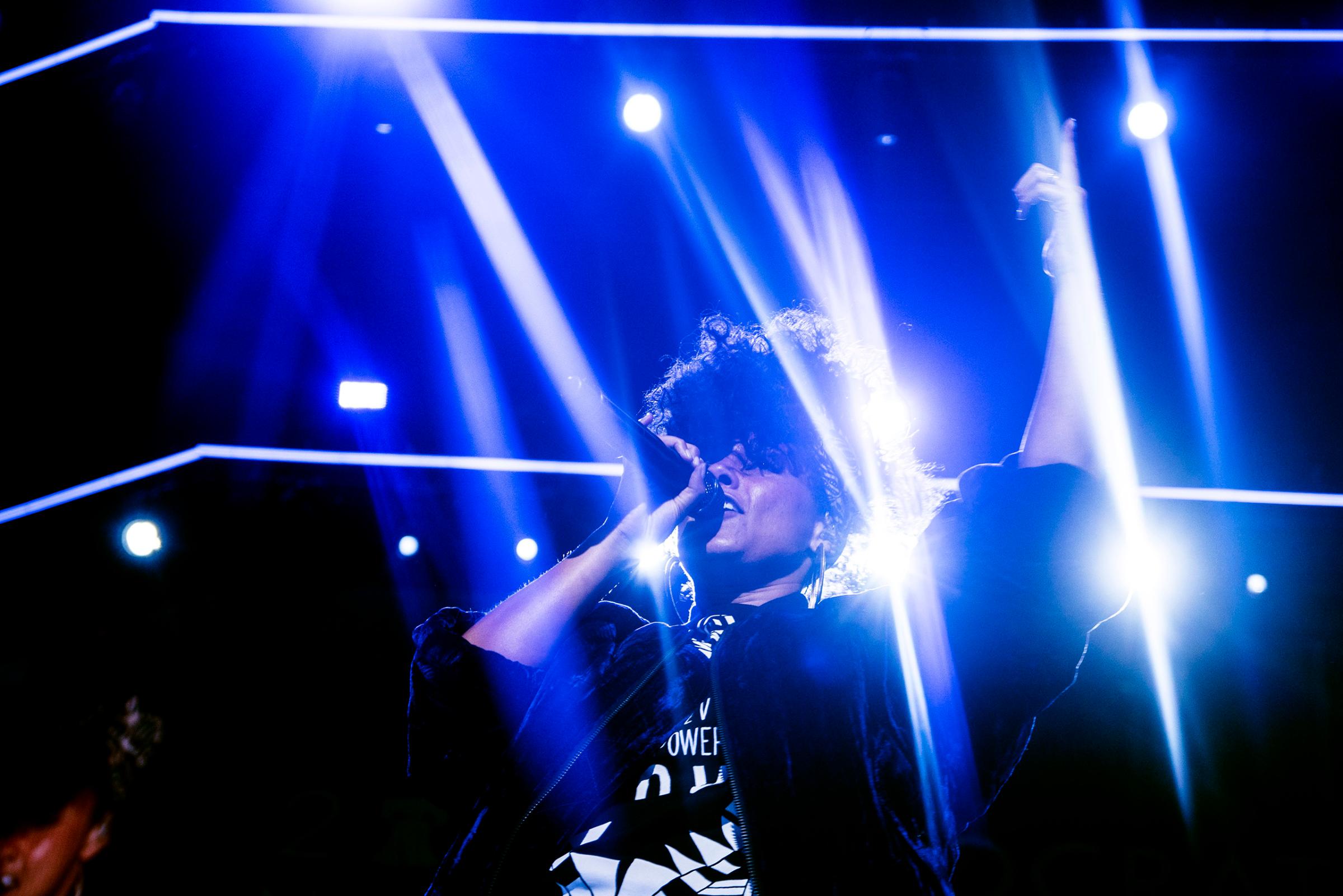
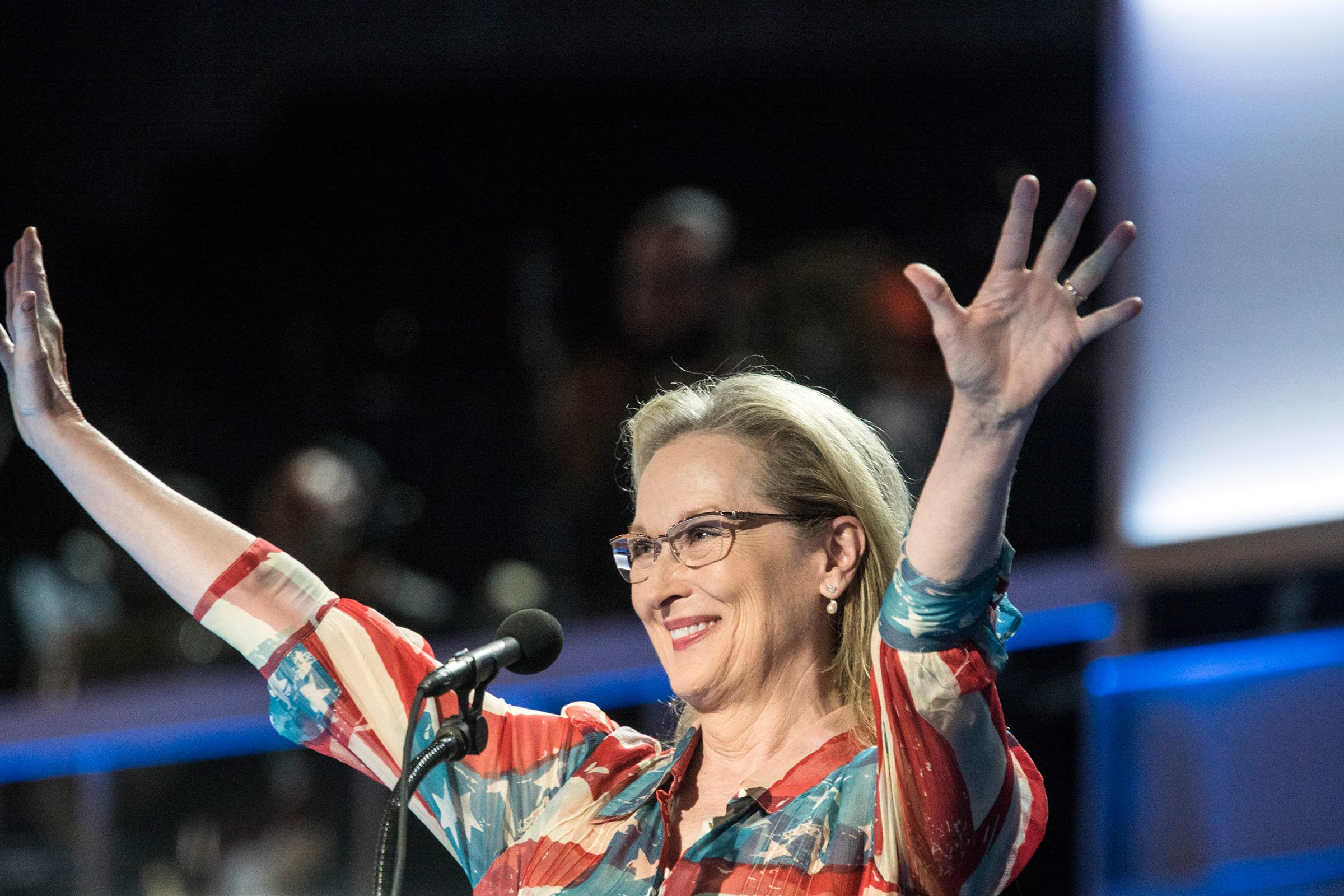
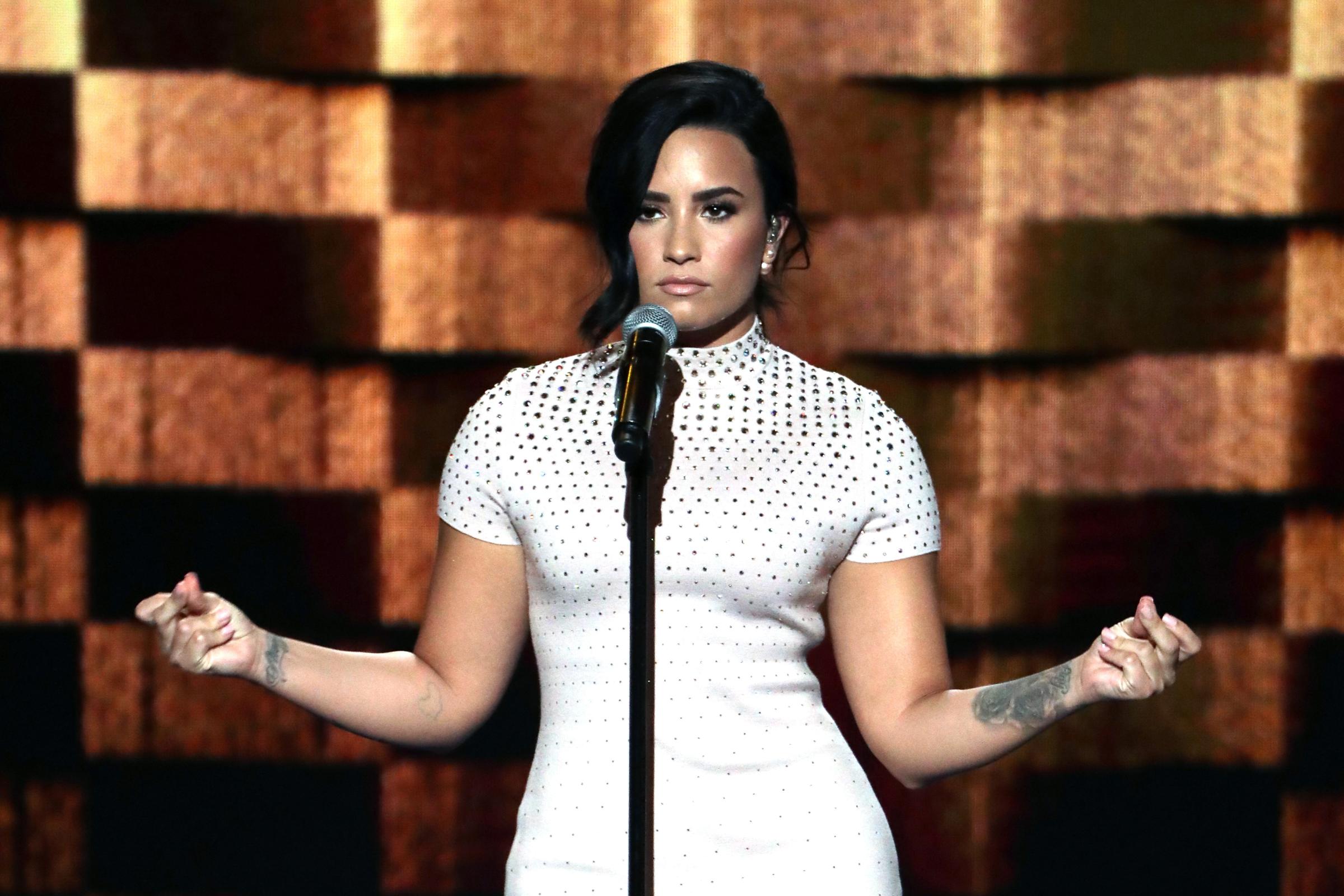
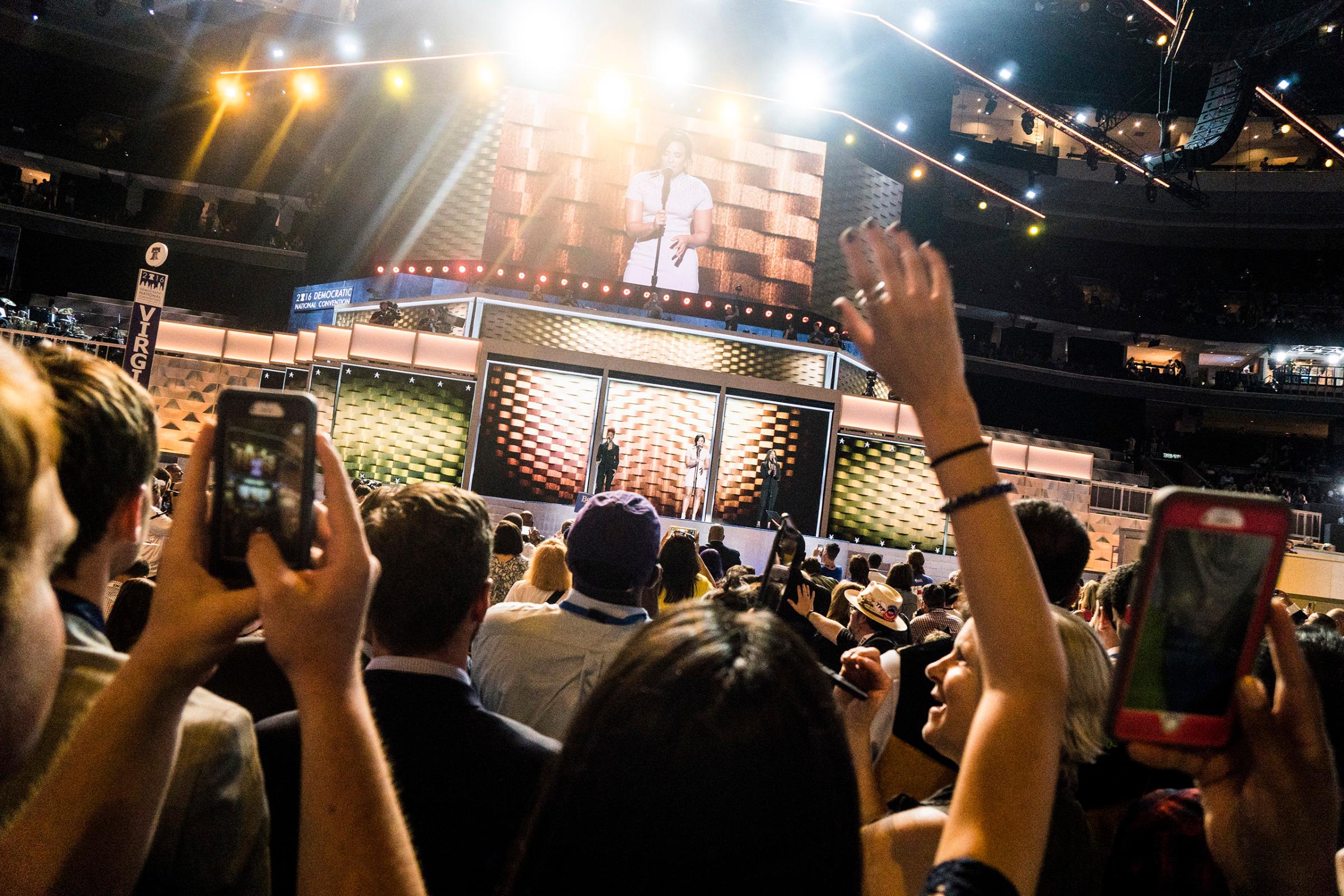
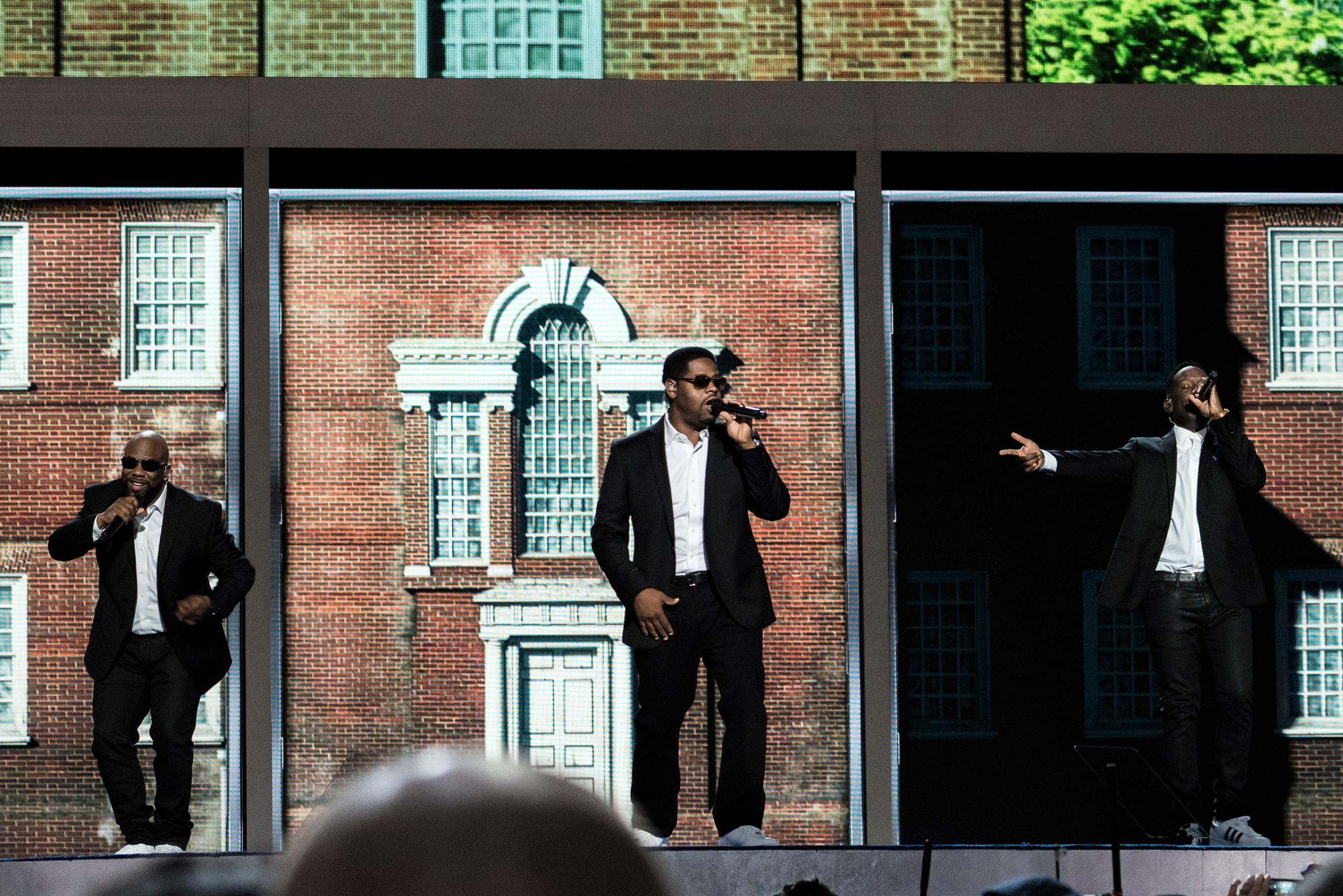
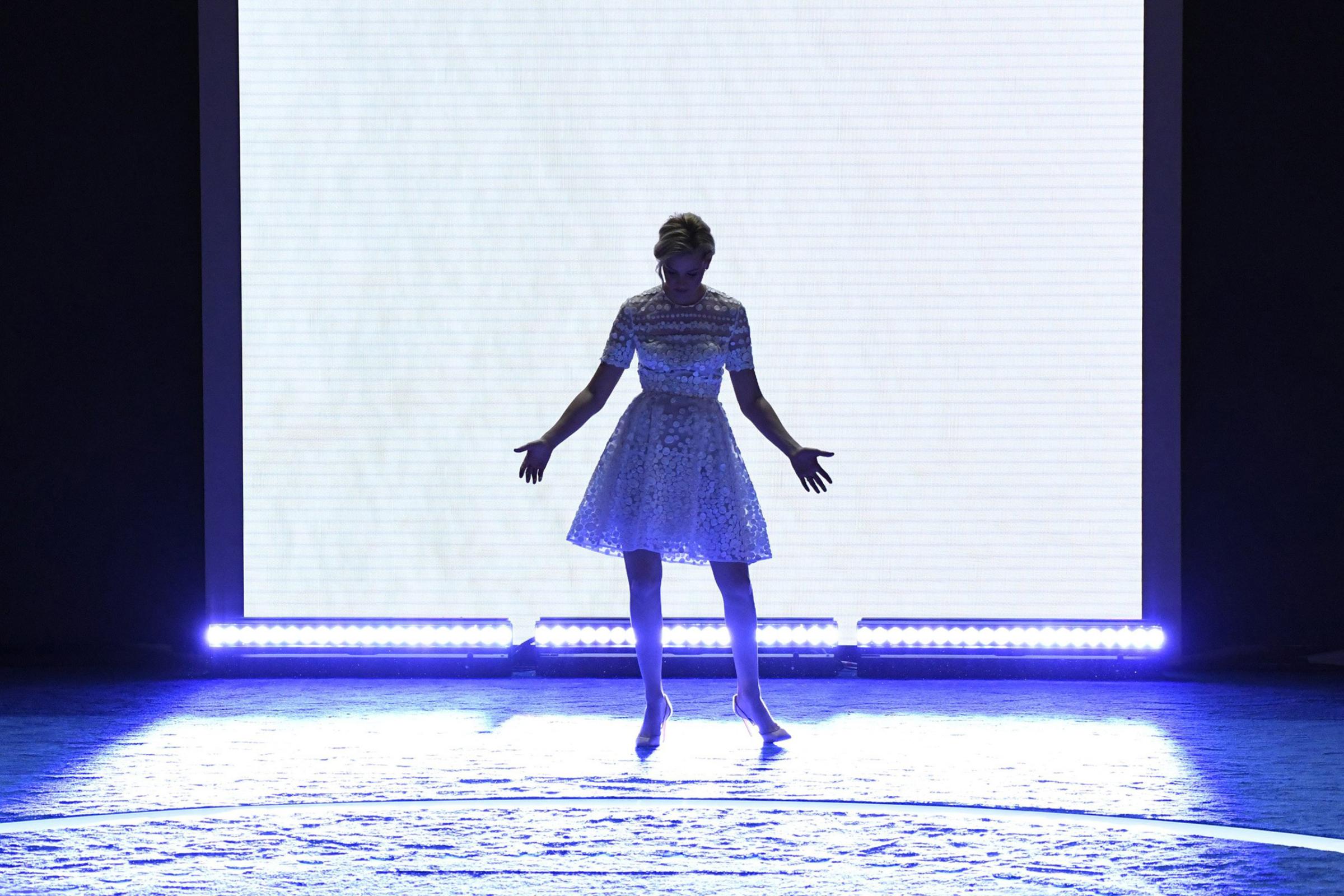
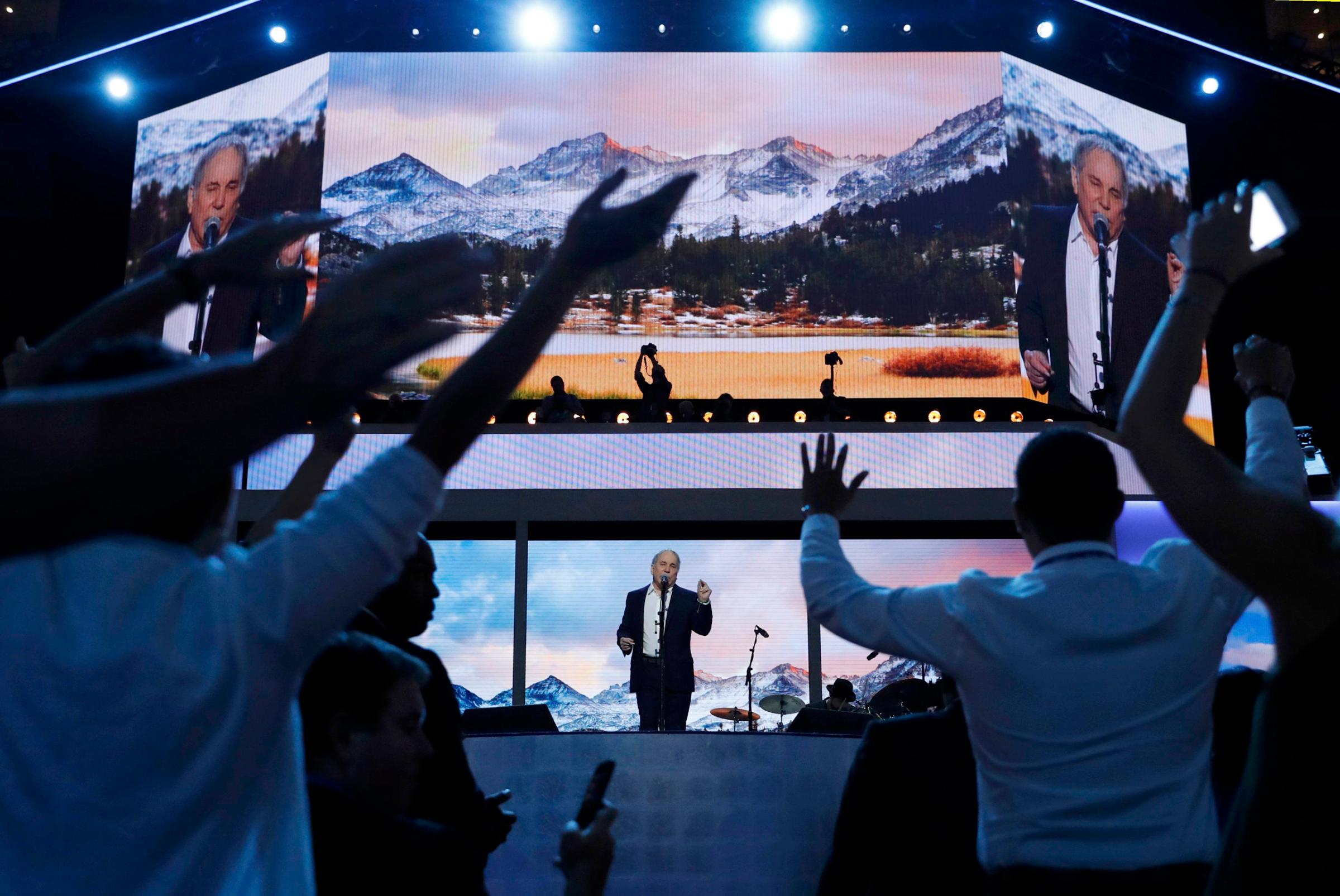
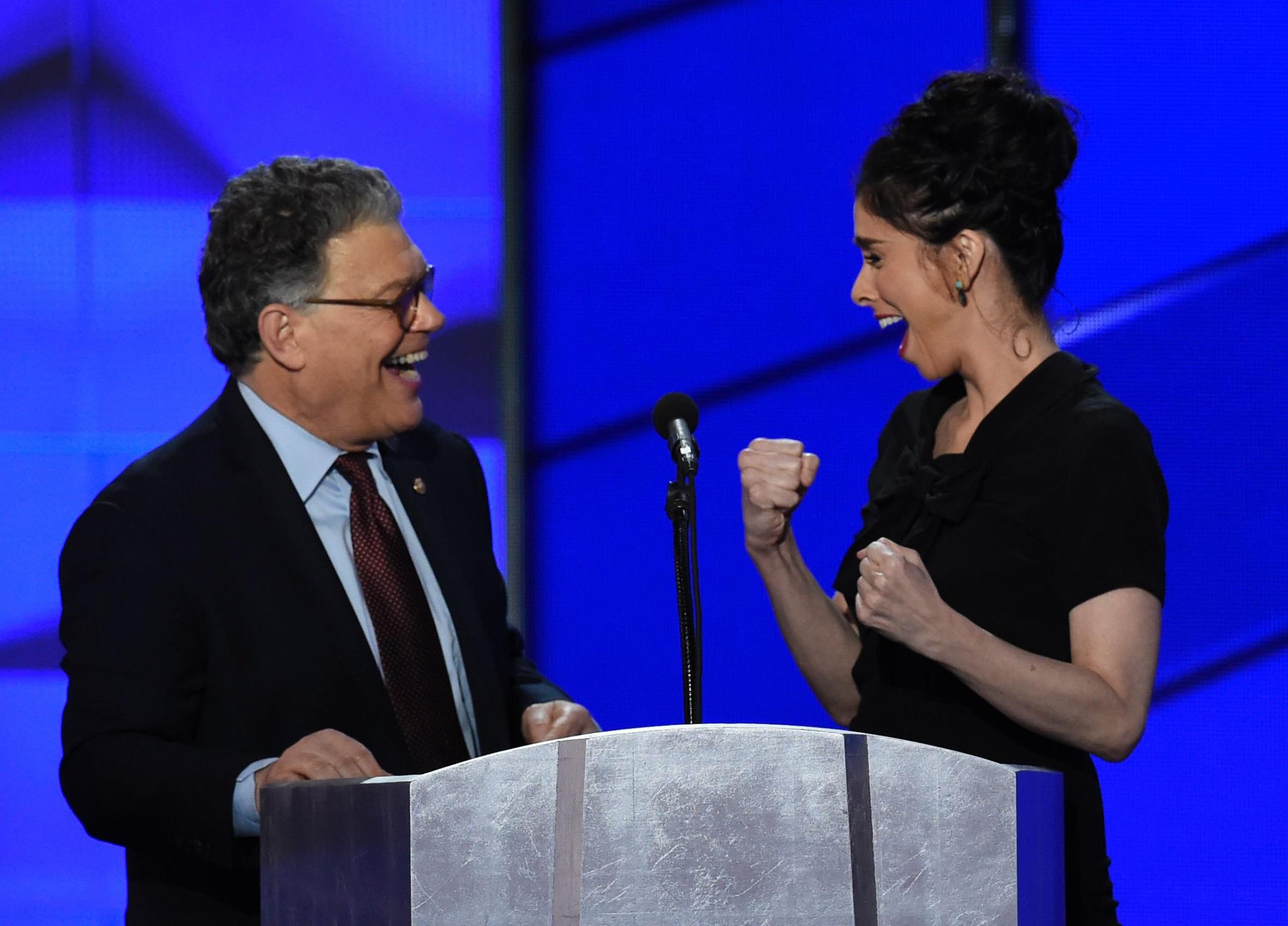
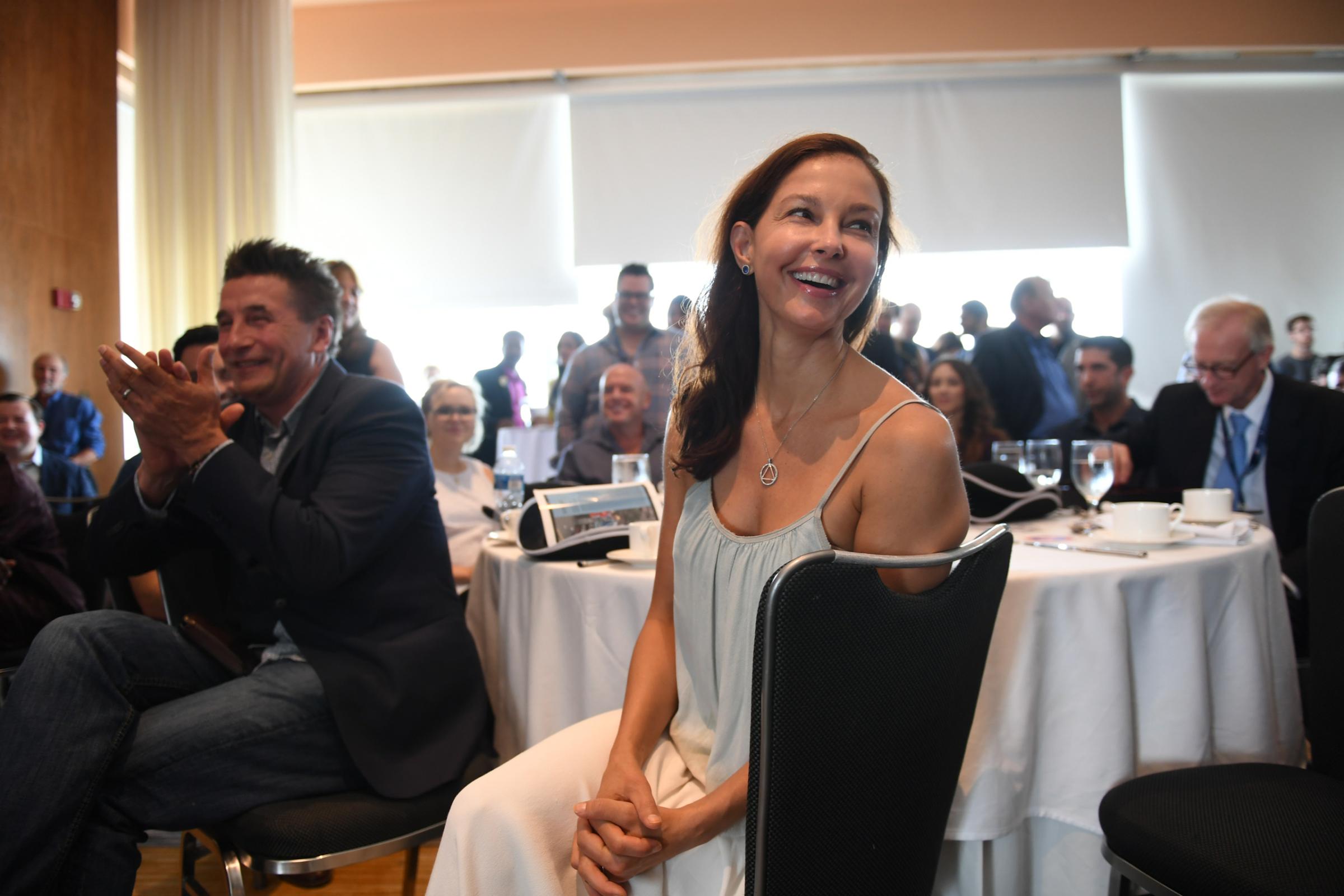
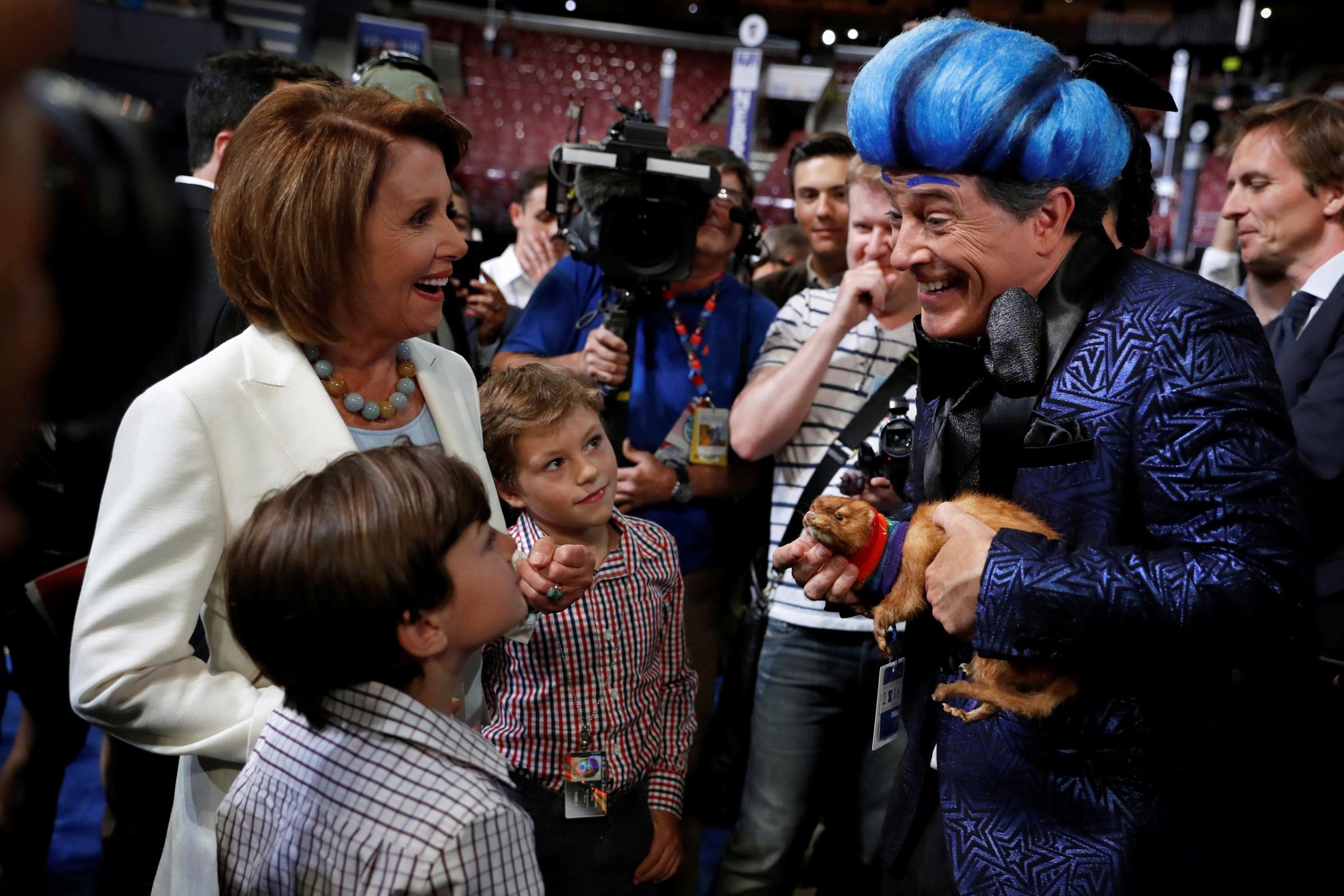
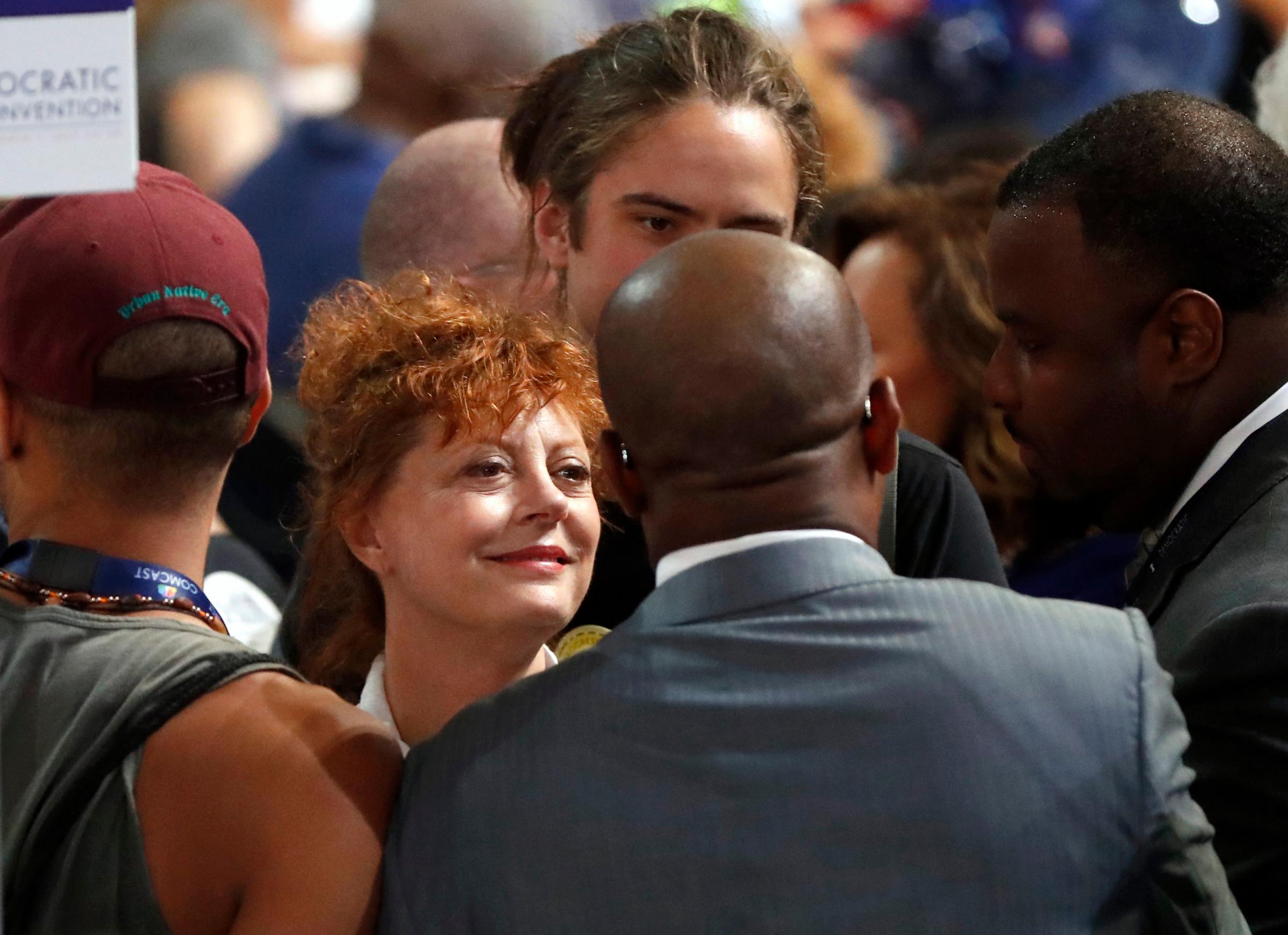
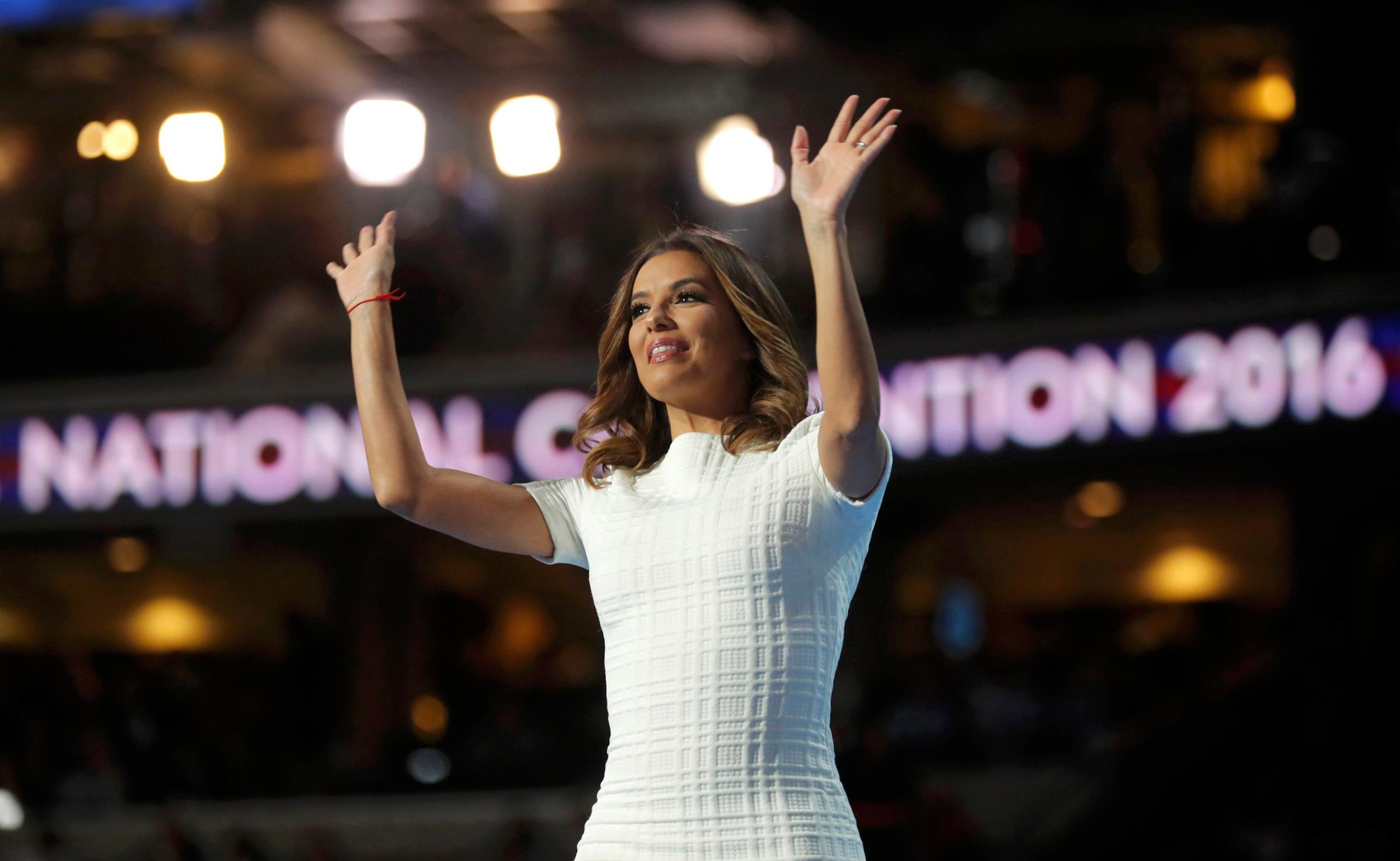
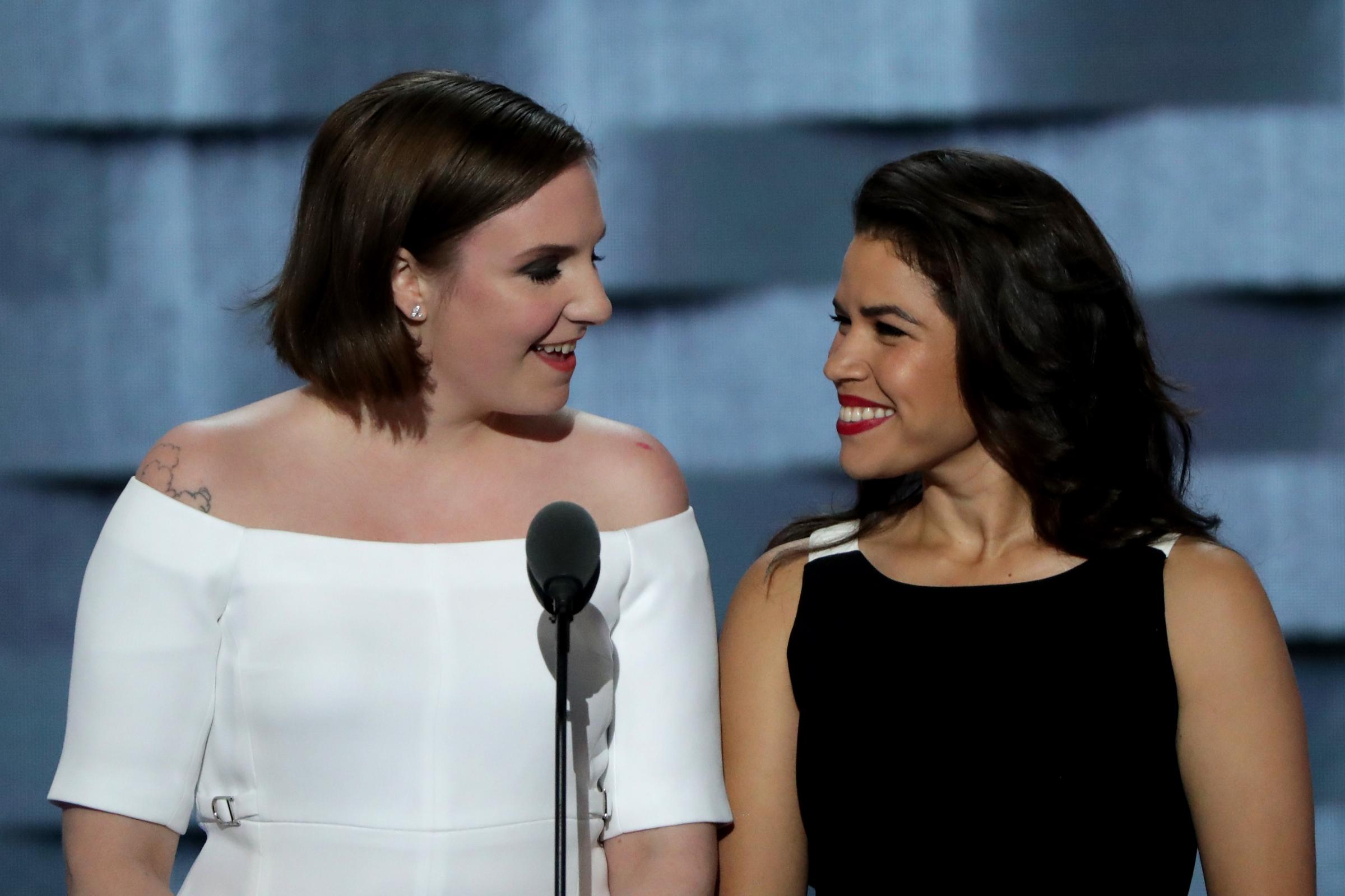
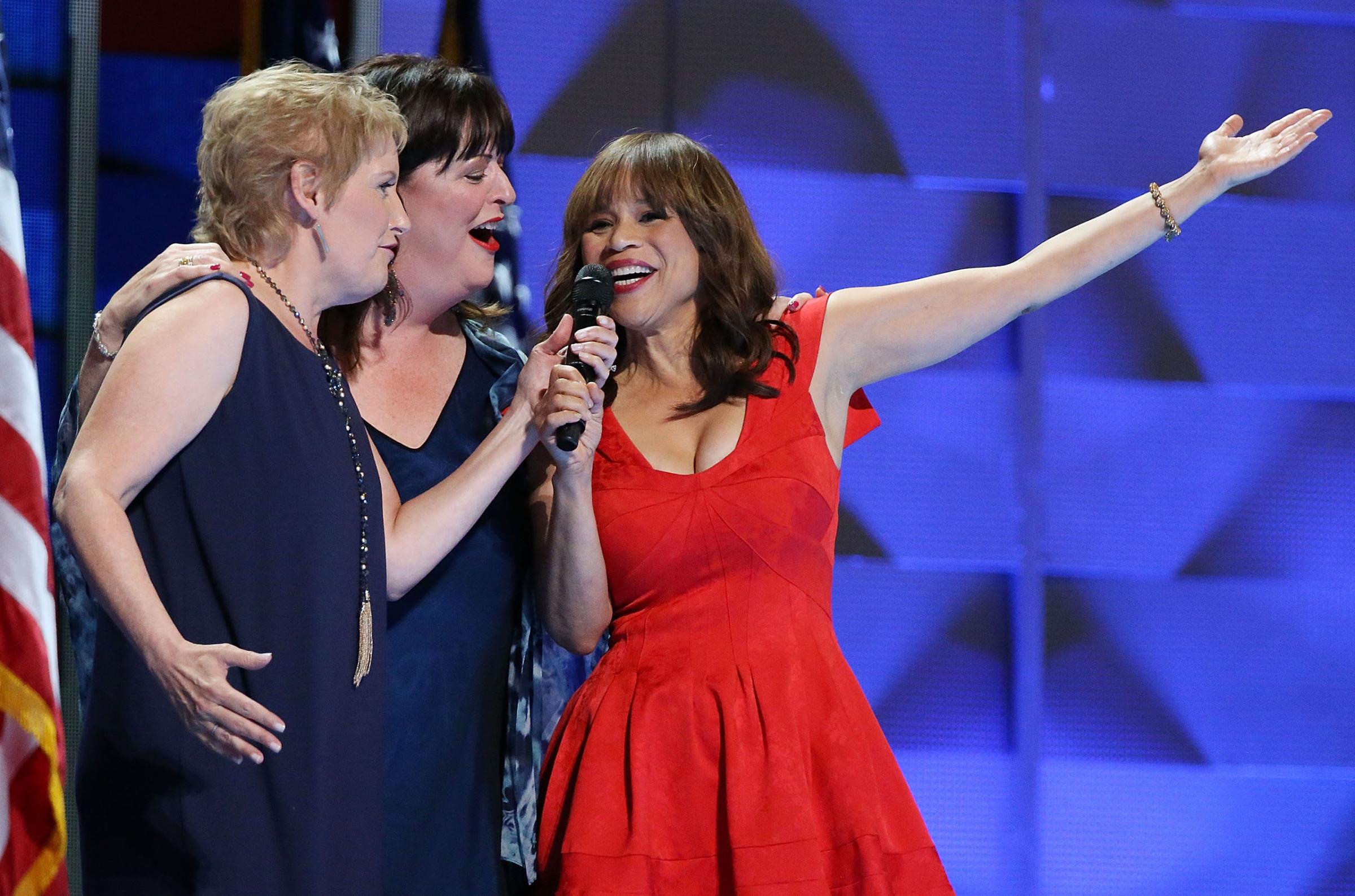
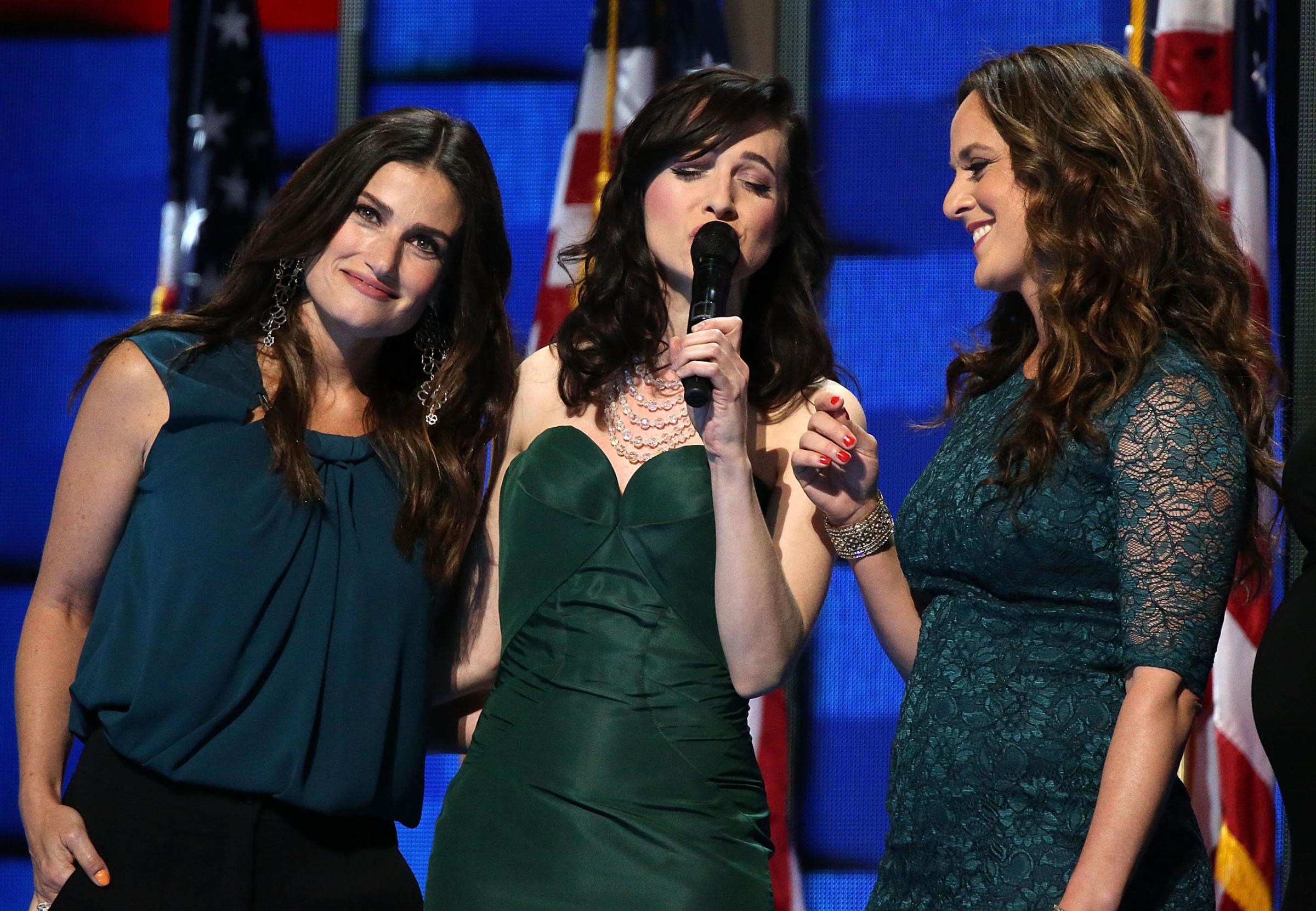
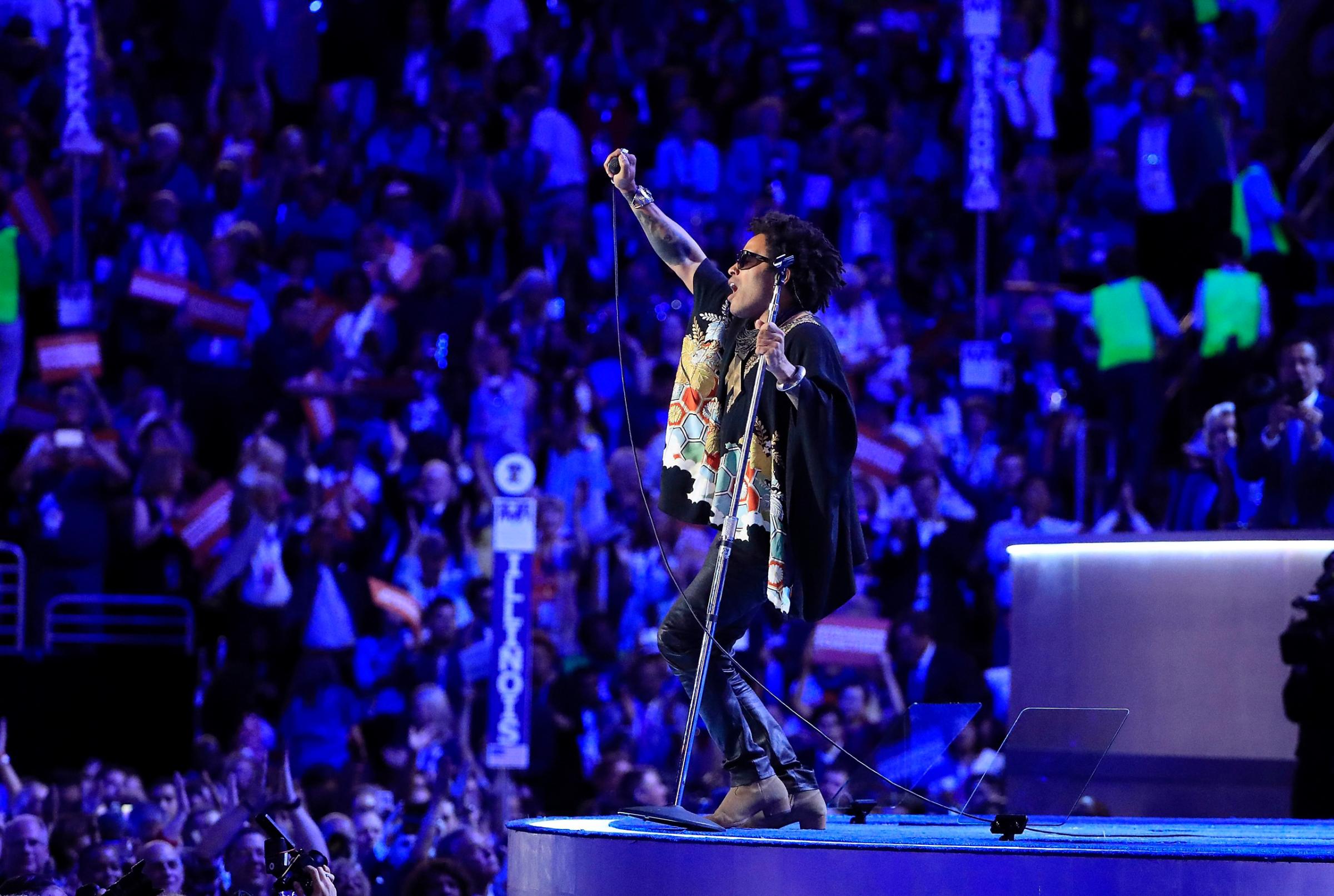
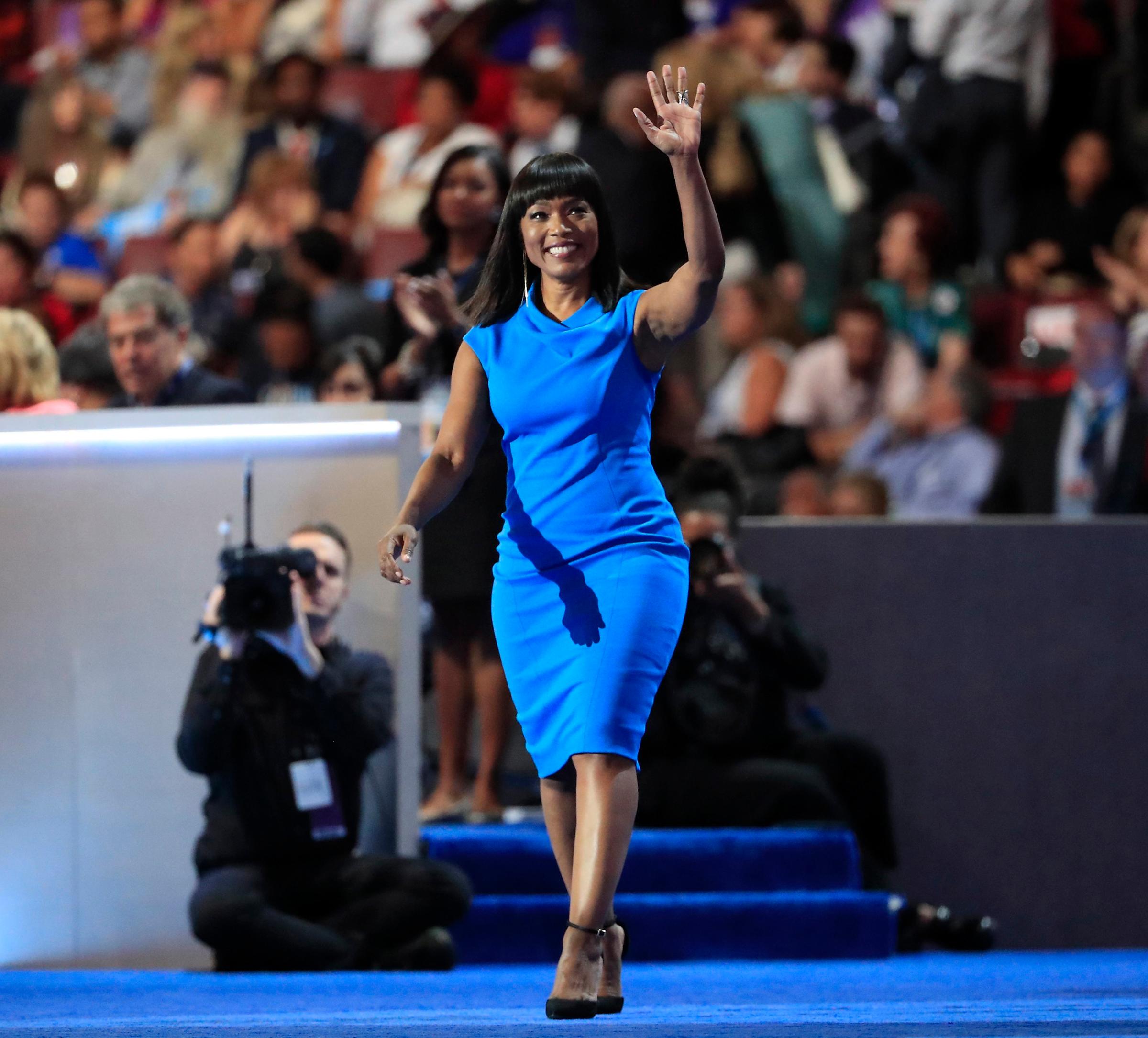
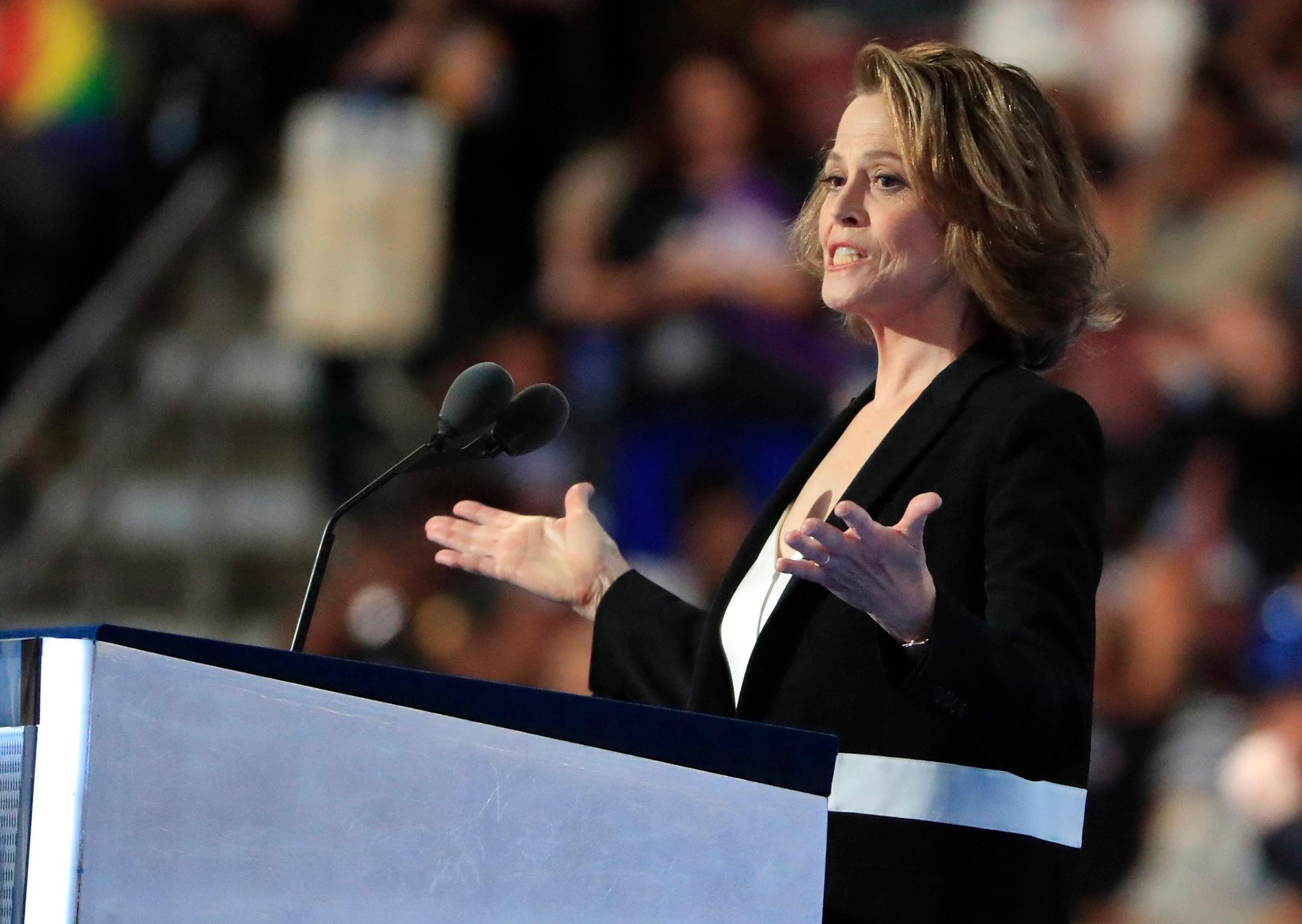
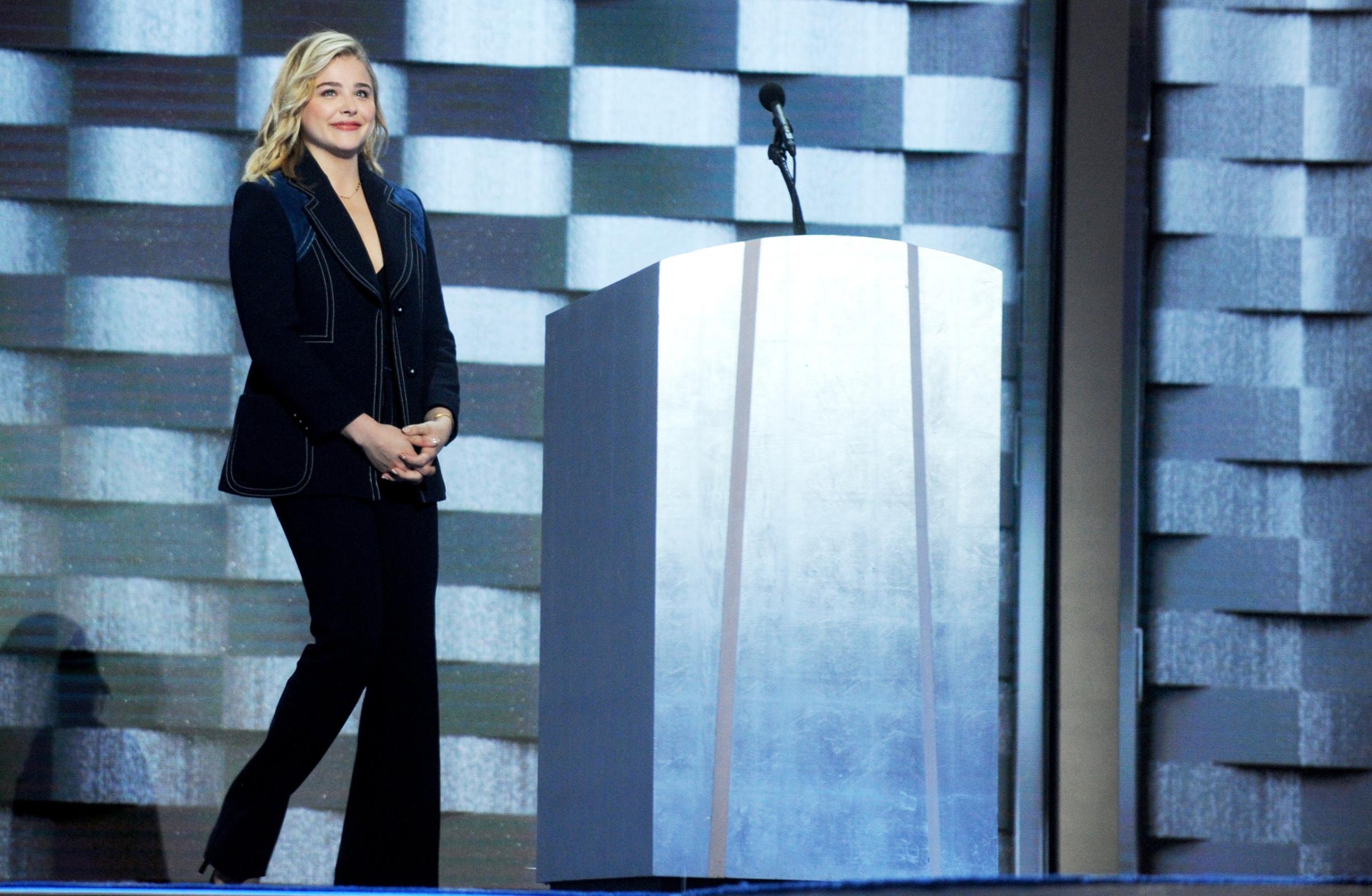
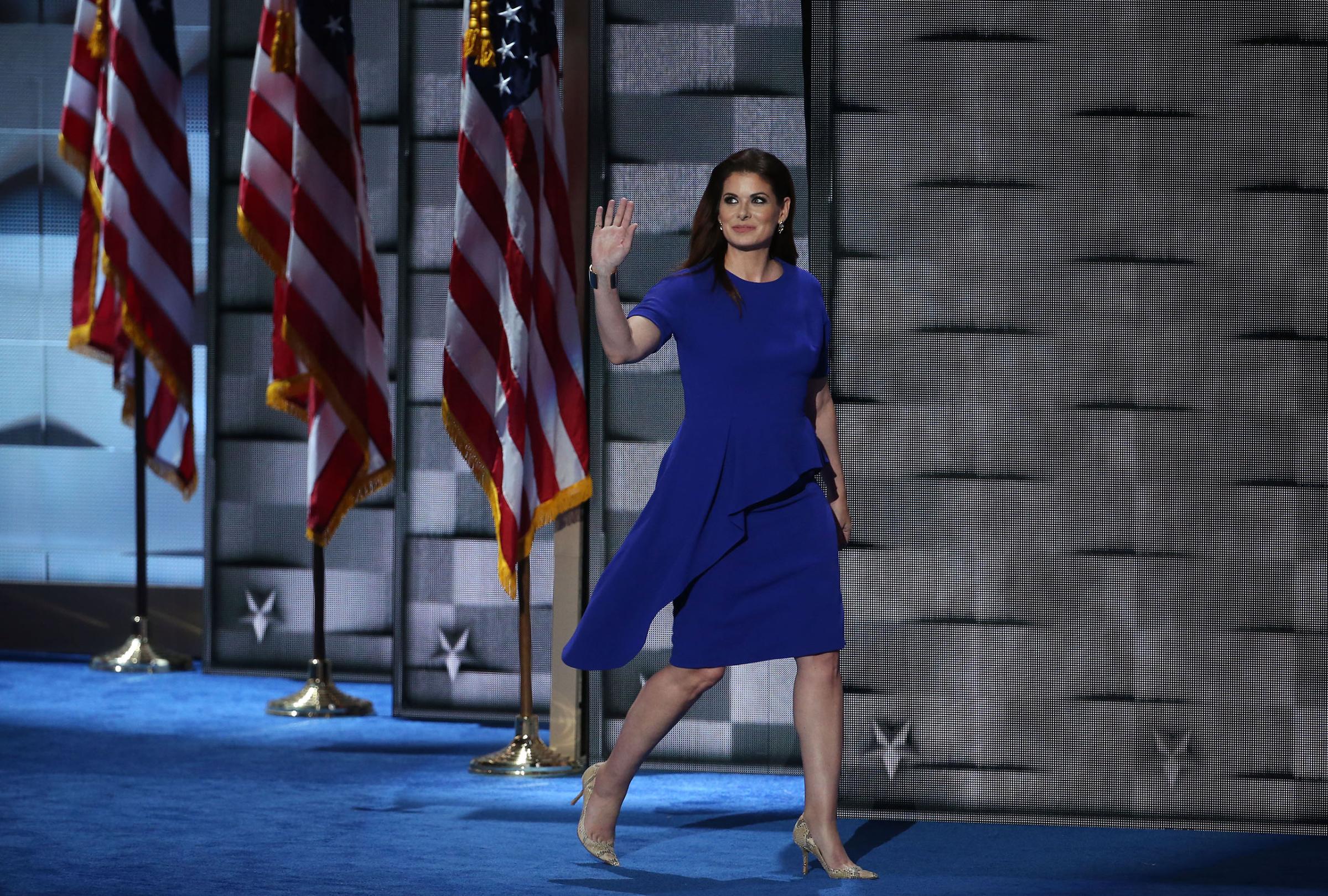
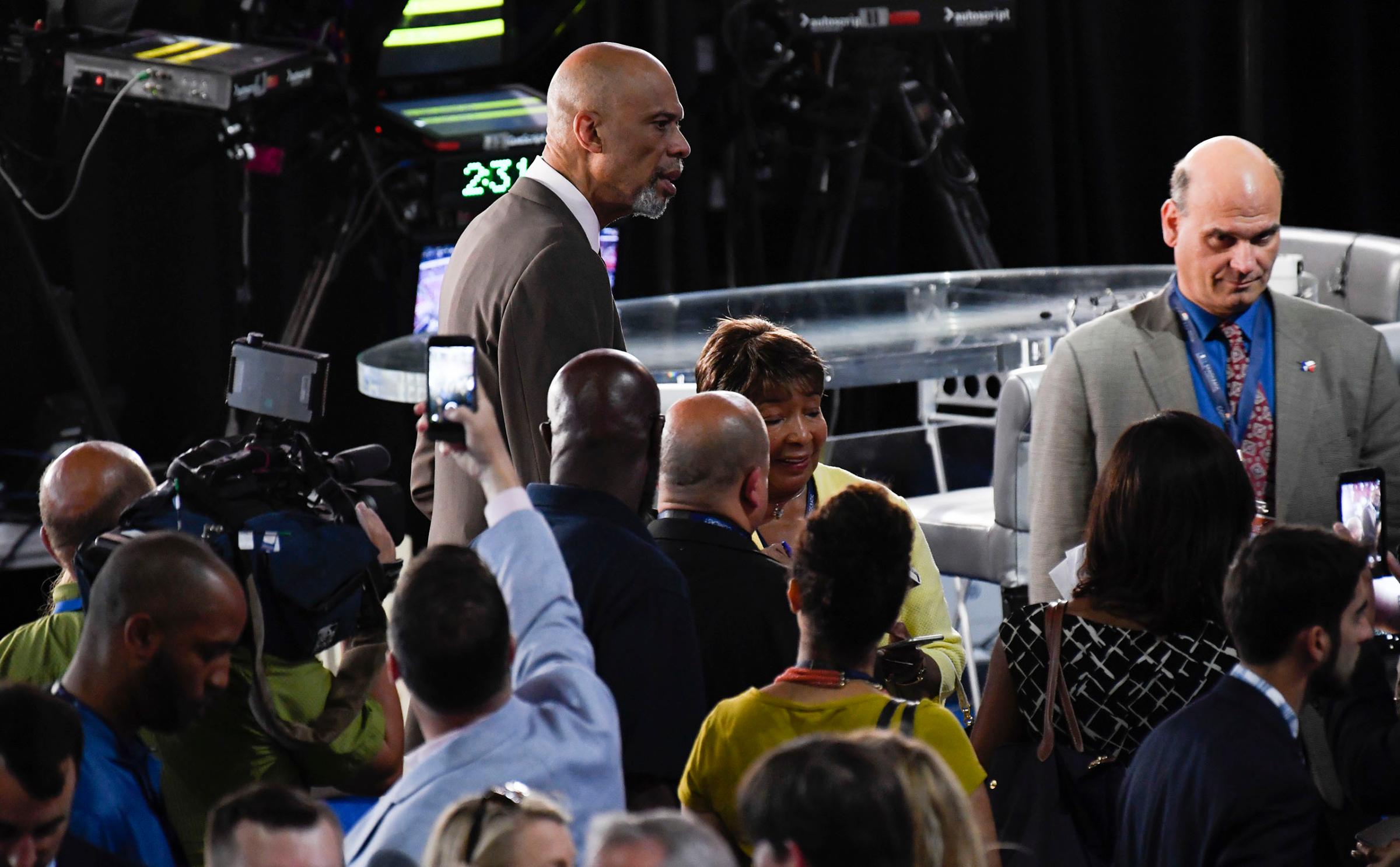
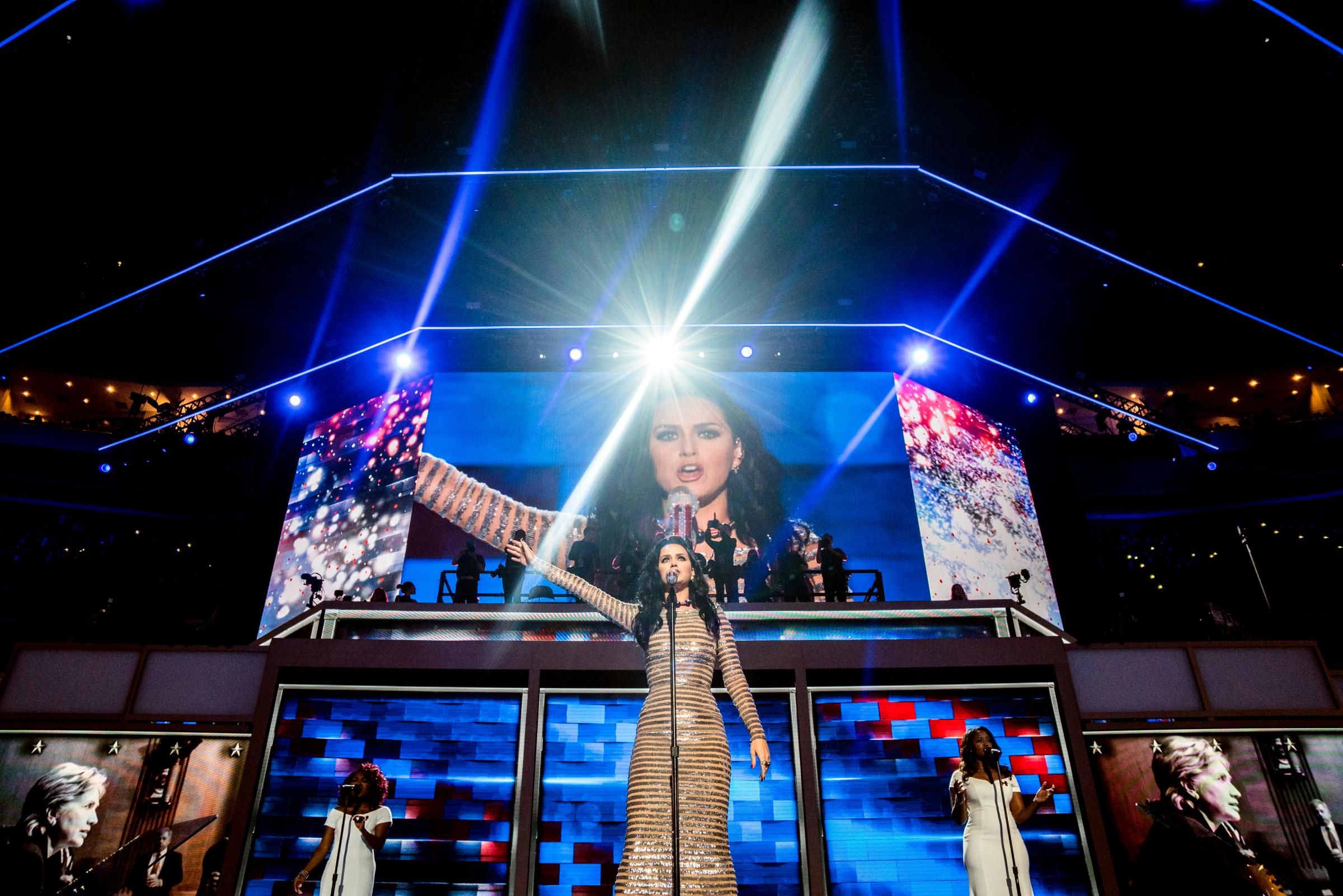
There was nothing in the video that a group of friends of any level of talent couldn’t have done in 30 minutes with a “Fight Song” lyrics sheet and an iPhone camera. And that’s the point: The stars, here, are tamping down their inherent star quality in favor of an amiable goofiness that’s sunny if not substantive. Onstage at the convention, Lena Dunham and America Ferrera made clear pro-Clinton points and anti-Trump points, but did so in a bantering, friendly way that wouldn’t have been out-of-place if they were co-presenting Best Supporting Actor at the Golden Globes. Meryl Streep, whose offscreen persona is as chill as her onscreen work is meticulous, took the stage in a charmingly idiosyncratic American-flag-print dress to let out a whoop of glee. And a group of Broadway singers took the stage Wednesday night for a group performance of “What the World Needs Now” made memorable by its pass-the-mic device—each star had a few seconds in the spotlight, creating a disjointed and cutely collaborative scene. Much like “Fight Song,” it did not yield an aural experience I would spend $1.29 on at iTunes. That was the fun of it. The performance had nothing to do with politics, and yet its reliance on teamwork over the virtuosic individual talent was pointed enough to stick.
Placing stars in situations designed to bring them down to earth had its rockier moments; poor Demi Lovato was granted literally no transition between her impassioned speech about living with mental illness and the beat of her song “Confident” dropping—it was about as deglamorized as a pop star’s performance could get, though she acquitted herself well. And speaking extemporaneously when asked to vamp for time before a delayed performance by Paul Simon, Sarah Silverman sowed a bit of chaos when telling avid Bernie Sanders supporters they were “ridiculous.” A convention that deployed its celebrities with more rigor—like, say, the RNC—would never have allowed this baggy delay to happen in the first place, and would have ensured that Silverman had a script to stick to. Or they would have booked a celebrity more willing to deliver a speech that relied more on hitting talking points, hard, than on jokes.
Nothing, except perhaps the delay for Paul Simon, is, here, an accident, and the Democratic convention’s strategy was, in the main, effective. The DNC’s strategy of carefully constructing opportunities for casualness feels like a purposeful, and smart, way to repackage star power.
In an election more defined than any in memory by the the power of pop-culture iconography, the DNC was bound to trot out stars—they usually do anyhow. In 2012, for instance, Scarlett Johansson, Kerry Washington and Longoria all spoke. But the way the higher volume stars were framed this time around was something else—as confidantes or chatty pals, not policy experts. Scott Baio wanted you to listen to him because he’s Scott Baio. The stars of the DNC wanted you to dance and sing and joke and shout with them because life is depressing enough—why not have a little fun? It remains to be seen whether it’s a gambit that will have any impact at the ballot-box—if it’s none, perhaps the celebrities at the next DNC will be grimmer and graver. (It’s hard to imagine they’ll reduce in volume, or that politics and celebrity will unweave themselves over the next four years.)
For now, though, the DNC has been a cannily crafted reminder that celebrity can be used as something other than a cudgel.
More Must-Reads from TIME
- Cybersecurity Experts Are Sounding the Alarm on DOGE
- Meet the 2025 Women of the Year
- The Harsh Truth About Disability Inclusion
- Why Do More Young Adults Have Cancer?
- Colman Domingo Leads With Radical Love
- How to Get Better at Doing Things Alone
- Michelle Zauner Stares Down the Darkness
Contact us at letters@time.com